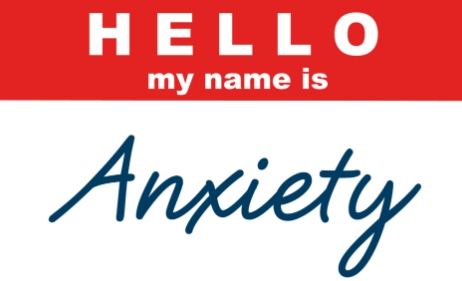
It can be stressful for those who have anxiety and need to present for classes.
Many students are given only one option to present. This could prove to be a big problem for students with anxiety. Anxiety doesn’t just affect people emotionally, but it also affects them physically. According to WebMD, those symptoms could include panic attacks, shortness of breath, shaking, nausea, headache, rapid heartbeat, dizziness, and more.
Many students will need to create a presentation for speaking in core classes like english, science, and other elective classes. Students may experience anxiety and stress while presenting in front of an entire class. They may fear messing up a presentation by saying something wrong, creating a self-fulfilling prophecy once they actually do present. According to the Mayo Clinic, people who have an anxiety disorder often experience sweating, lack of concentration, irritability, excessive worry, and fear. Anxiety often leads to depression. For some students, all they can think about is how they may not receive a good grade because of what trouble they may go through when speaking in classes. Instead of being able to focus on their presentation, for some, all they’ll be able to think about is failing due to their anxiety.
Only students who feel competent enough to present should be required to. Those who have anxiety should be offered an alternative project rather than presenting in class. Possible alternatives are an informational paper or creating a presentation for the teacher alone–not to be presented in class. Understood.org says if diagnosed by a certified health professional, teens with an anxiety disorder may be able to set up an individual education plan, or IEP, (which ends in grade 12) with their school in order to change the expectations of how certain assignments are performed. A 504 plan is very similar to an IEP, but specifically majorly impacts life functions and continues through work and college with no age limit. In some cases, a student might even have an IEP in place that protects them against assignments that may increase their anxiety. If an IEP specifies a student should not be required to speak publicly due to a possibility of worsening their anxiety, accommodations should be made. For presentations that are for informational only, teachers could find a way to get the information across to the class that doesn’t involve the anxiety-ridden student to present.
Students should not have to be afraid of receiving an F on assignments because they are genuinely uncomfortable presenting in front of their peers, and should be able to demonstrate skill and content mastery other ways more comfortable to them.

Shaylee • Oct 3, 2018 at 3:39 pm
Wow that was good.